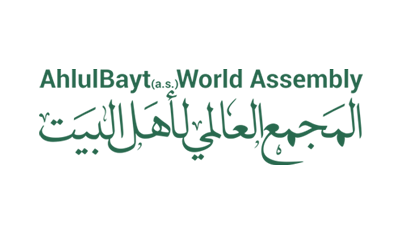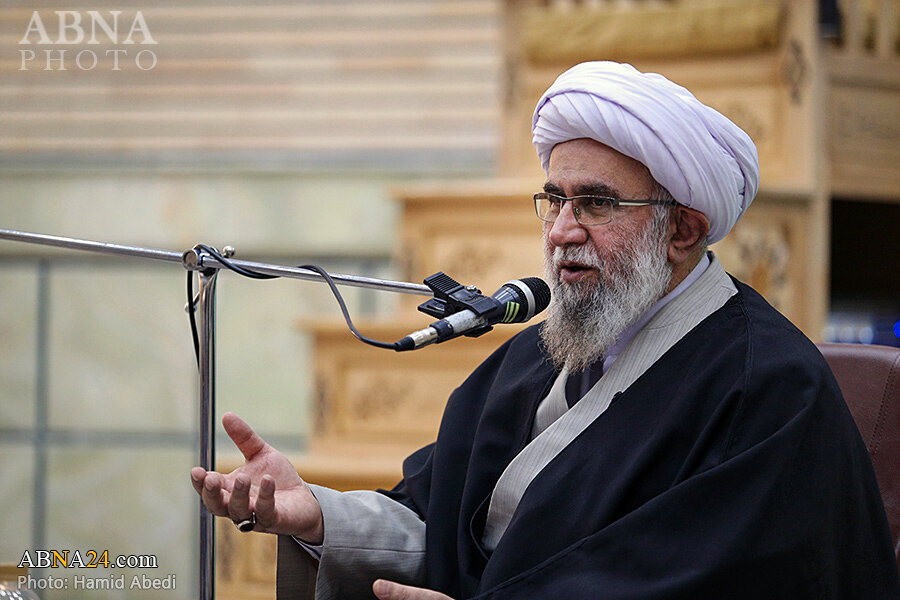Iran Has Made Significant Progress After the Islamic Revolution
In remarks on the occasion of the 46th anniversary of the victory of the Islamic Revolution of Iran, Ayatollah Ramazani said, “We believe that the uprising of the Iranian people was for the realization of social justice, which we still have to pay the price for today. One of the important points we must consider today is that the people should not see a contradiction between the actions of officials and the discourse of the Islamic Revolution.”
According to the official information website of the AhlulBayt (a.s.) World Assembly - On Wednesday, February 5, 2025, marking the 46th anniversary of the victory of the Islamic Revolution in Iran, Ayatollah Reza Ramazani, Secretary-General of the AhlulBayt (a.s.) World Assembly and a member of the Assembly of Experts, discussed the features, principles, and achievements of the Islamic Revolution at the beginning of his Kharij Fiqh class.
Ayatollah Ramazani stated, “Without a doubt, the core discourse of the Islamic Revolution is justice. Moving toward comprehensive justice is a significant claim, and achieving justice requires sacrifices, whether financial, personal, or reputational. One cannot pursue justice without bearing its costs.”
He added, “Throughout history, global oppressors have always opposed justice, as they see true justice as a threat to their interests. When justice prevails, rights are upheld, but the oppressors refuse to allow people to receive their due rights based on their dignity. Today, 90% of the world’s wealth is controlled by less than 10% of the global population within the oppressive system, an ongoing injustice.”
Explaining the reasons behind the Islamic Revolution, he said, “This revolution was formed with several objectives, the most important being independence. The goal was for Iran to achieve real independence and free itself from dependence. Unfortunately, full political and social independence does not exist in most Muslim countries, just as Iran lacked it before the 1979 Revolution. Today, the only Muslim country that has claimed and paid a high price for its independence is the Islamic Republic of Iran. This is not just a claim; great sacrifices have been made, including the loss of pure and honorable lives. prominent figures and bright young individuals have been sacrificed and continue to be sacrificed. The revolution was established to attain independence, a long-held aspiration of Muslim nations.”
Ayatollah Ramazani emphasized, “One of the greatest outcomes of the Islamic Revolution was the establishment of the Islamic Republic. On April 1, 1979, the people voted for a political system based on Islam, and the vast majority of the Iranian nation approved this governance model.”
Regarding cultural factors in the Revolution, he said, “Dignity, justice, and honor were the foundations of the Revolution. The Pahlavi dynasty inflicted great harm on Islam, mocking its laws and opposing issues like hijab. At that time, Iran had no global significance. However, today, Iran is at the center of history and a key player in international developments. Iran now holds a strategic presence not only in the region but on a global scale. The Revolution was a religious and cultural movement aimed at elevating Iranian society.”
Speaking about national sovereignty, he noted, “Historically, Iran once spanned over five million square kilometers, but today, it has shrunk to about 1.6 million square kilometers. Incompetent monarchs lost vast territories through treaties like the Treaty of Turkmenchay, with the last loss occurring under Mohammad Reza Pahlavi, who ceded Iran’s 14th province of the country to the West and even celebrated it!”
Regarding resistance, Ayatollah Ramazani stated, “One of the major impacts of the revolution has been instilling a spirit of resistance against oppression. The Islamic Revolution placed us on a path where we stand firm against tyranny because resistance is the only language that can counter oppression.”
Highlighting the Revolution’s contributions to cultural, scientific developments, and national identity, he said, “The Revolution prioritized cultural advancement and public education. Iran has achieved remarkable scientific progress since the revolution. In the early years, the country lacked sufficient medical professionals, relying on foreign physicians. Today, not only is there no shortage, but Iran has an abundance of specialists. Iran has also become a medical hub in West Asia, attracting patients from neighboring countries.”
Discussing scientific advancements, he noted, “Iran has made great progress in research and technology. According to statistics, 26 years ago, Iran ranked 54th globally in scientific production with 851 published papers. By 2022, this number exceeded 78,000, raising Iran to the 15th position, making it one of the world’s leading scientific powers.”
He added, “Beyond science and technology, Iran has also made significant military advancements. Today, the Islamic Republic is recognized as a regional and international military power, progressing with wisdom and strategic foresight.”
In remarks on the occasion of the 46th anniversary of the victory of the Islamic Revolution of Iran, Ayatollah Ramazani said, “We believe that the uprising of the Iranian people was for the realization of social justice, which we still have to pay the price for today. One of the important points we must consider today is that the people should not see a contradiction between the actions of officials and the discourse of the Islamic Revolution.”
According to the official information website of the AhlulBayt (a.s.) World Assembly - On Wednesday, February 5, 2025, marking the 46th anniversary of the victory of the Islamic Revolution in Iran, Ayatollah Reza Ramazani, Secretary-General of the AhlulBayt (a.s.) World Assembly and a member of the Assembly of Experts, discussed the features, principles, and achievements of the Islamic Revolution at the beginning of his Kharij Fiqh class.
Ayatollah Ramazani stated, “Without a doubt, the core discourse of the Islamic Revolution is justice. Moving toward comprehensive justice is a significant claim, and achieving justice requires sacrifices, whether financial, personal, or reputational. One cannot pursue justice without bearing its costs.”
He added, “Throughout history, global oppressors have always opposed justice, as they see true justice as a threat to their interests. When justice prevails, rights are upheld, but the oppressors refuse to allow people to receive their due rights based on their dignity. Today, 90% of the world’s wealth is controlled by less than 10% of the global population within the oppressive system, an ongoing injustice.”
Explaining the reasons behind the Islamic Revolution, he said, “This revolution was formed with several objectives, the most important being independence. The goal was for Iran to achieve real independence and free itself from dependence. Unfortunately, full political and social independence does not exist in most Muslim countries, just as Iran lacked it before the 1979 Revolution. Today, the only Muslim country that has claimed and paid a high price for its independence is the Islamic Republic of Iran. This is not just a claim; great sacrifices have been made, including the loss of pure and honorable lives. prominent figures and bright young individuals have been sacrificed and continue to be sacrificed. The revolution was established to attain independence, a long-held aspiration of Muslim nations.”
Ayatollah Ramazani emphasized, “One of the greatest outcomes of the Islamic Revolution was the establishment of the Islamic Republic. On April 1, 1979, the people voted for a political system based on Islam, and the vast majority of the Iranian nation approved this governance model.”
Regarding cultural factors in the Revolution, he said, “Dignity, justice, and honor were the foundations of the Revolution. The Pahlavi dynasty inflicted great harm on Islam, mocking its laws and opposing issues like hijab. At that time, Iran had no global significance. However, today, Iran is at the center of history and a key player in international developments. Iran now holds a strategic presence not only in the region but on a global scale. The Revolution was a religious and cultural movement aimed at elevating Iranian society.”
Speaking about national sovereignty, he noted, “Historically, Iran once spanned over five million square kilometers, but today, it has shrunk to about 1.6 million square kilometers. Incompetent monarchs lost vast territories through treaties like the Treaty of Turkmenchay, with the last loss occurring under Mohammad Reza Pahlavi, who ceded Iran’s 14th province of the country to the West and even celebrated it!”
Regarding resistance, Ayatollah Ramazani stated, “One of the major impacts of the revolution has been instilling a spirit of resistance against oppression. The Islamic Revolution placed us on a path where we stand firm against tyranny because resistance is the only language that can counter oppression.”
Highlighting the Revolution’s contributions to cultural, scientific developments, and national identity, he said, “The Revolution prioritized cultural advancement and public education. Iran has achieved remarkable scientific progress since the revolution. In the early years, the country lacked sufficient medical professionals, relying on foreign physicians. Today, not only is there no shortage, but Iran has an abundance of specialists. Iran has also become a medical hub in West Asia, attracting patients from neighboring countries.”
Discussing scientific advancements, he noted, “Iran has made great progress in research and technology. According to statistics, 26 years ago, Iran ranked 54th globally in scientific production with 851 published papers. By 2022, this number exceeded 78,000, raising Iran to the 15th position, making it one of the world’s leading scientific powers.”
He added, “Beyond science and technology, Iran has also made significant military advancements. Today, the Islamic Republic is recognized as a regional and international military power, progressing with wisdom and strategic foresight.”






